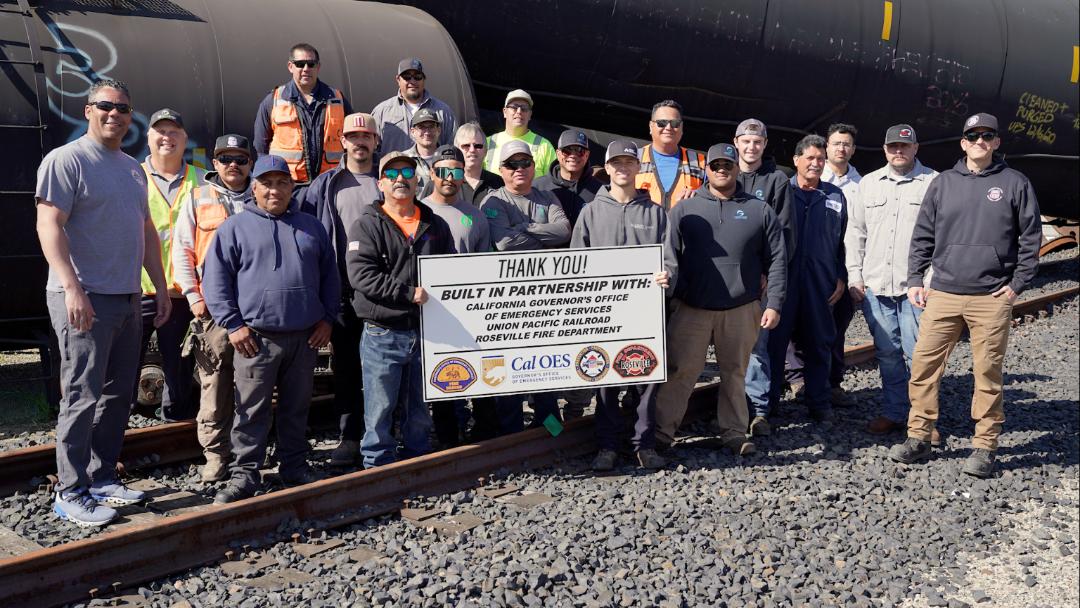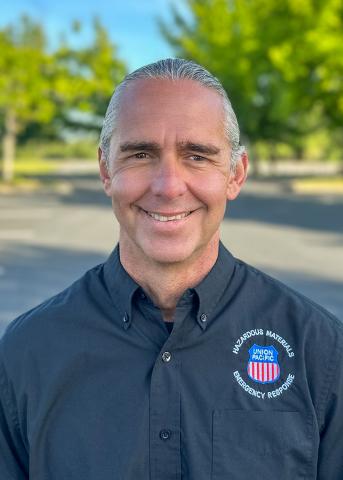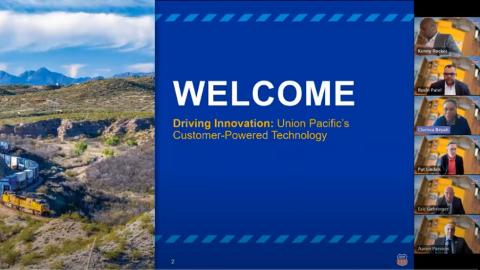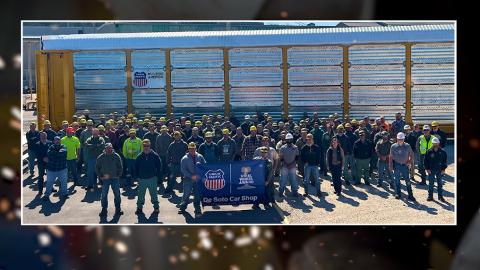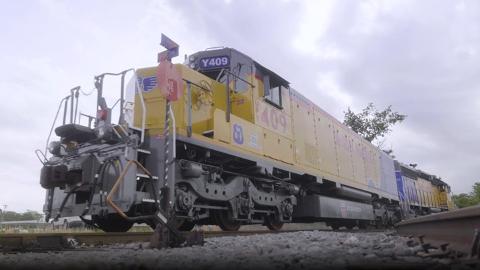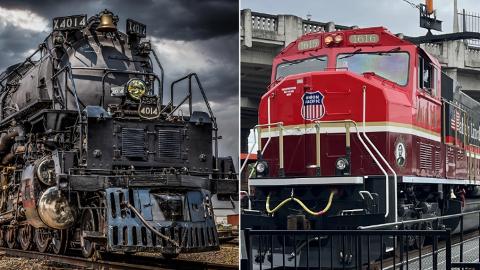Union Pacific’s rail network spans 33,000 miles across 23 central and western states. Union Pacific trains connect businesses from more than 7,300 communities along our right of way. Most of these communities have their own emergency response personnel.
While rail is by far the safest way to transport the hazardous materials all of us use in our day-to-day lives, every community must be prepared in the rare instance that an emergency response is necessary. Just like any other team, the only way to prepare and keep team members “on the same page” is through practice and training.
Union Pacific actively works with community emergency response personnel to implement preparedness tools and rail-specific approaches. This work includes sharing best practices and jointly educating our mutual team members. In the last four years alone, the Union Pacific Hazmat team has trained over 19,000 public responders.
Each year, Union Pacific participates in industry-wide whistle stop training tours. Nearly 6,000 local emergency responders have been reached through these locally administered training programs at Union Pacific-sponsored sites. These events cover emergency response as it relates to all forms of transportation, including railroads and truck lines. Courses range from the basics of response, which we call Railroading 101 (now available online through our partnership with TRANSCAER, a nationwide outreach initiative) to our Tank Car Safety Course and Advanced Tank Car Safety Course.
Our courses include classroom and hands-on activities using real-world props and scenarios and cover topics such as how to contact the railroad during an emergency, understanding shipping documentation, derailment safety considerations and railroad response assets at an incident site. Throughout the training, we outline the roles and responsibilities each stakeholder plays during a response.
Tank Car Training Enhances Safety Measures
Eighteen contractors from several different companies in California took part in the first-ever Contractor Tank Car Safety Course in Roseville, California.
These courses do more than just provide education and experience, they build relationships with our community partners -- and that’s critical for a safe and efficient response. Throughout my 22 years on the Hazardous Materials Team at Union Pacific, I’ve seen first-hand how this training can make a difference in critical situations. We strive to build productive relationships with local responders well before we meet them at an incident.
In addition to training, our Preparedness Program tests response plans developed by communities around the nation. Union Pacific’s core plan is the Hazardous Materials Emergency Response Plan (HMERP) -- a performance-based plan designed to prepare for, and respond to, an emergency. The HMERP provides guidance to the individual reporting a release, as well as a list of training requirements for those responding to an incident.
Subscribe to Inside Track
You may ask, “Does this approach really work?” The answer is, absolutely. In fact, within the last several months Union Pacific had a derailment in a small community where UP Hazmat had conducted a derailment exercise the year prior. The city’s mayor was very vocal about how much the response to the real-world event was aided by the exercise and the relationships developed during previous training.
Last month, our Preparedness Program conducted our first Contractor Tank Car Safety Course. Eighteen contractors from several different contract companies took part in this first-ever training, which took place in Roseville, California. As you can see by the video included in this story, we covered a lot of ground, and our contractor participants appreciated the hands-on experience during a scenario that closely resembled a real-world incident. Our contractor network is a valuable part of our team and we strive to ensure they have the training and resources necessary to safely respond to our incidents.
Our next course will be conducted in Des Moines, Iowa, next month with future classes to be conducted at locations throughout system.

